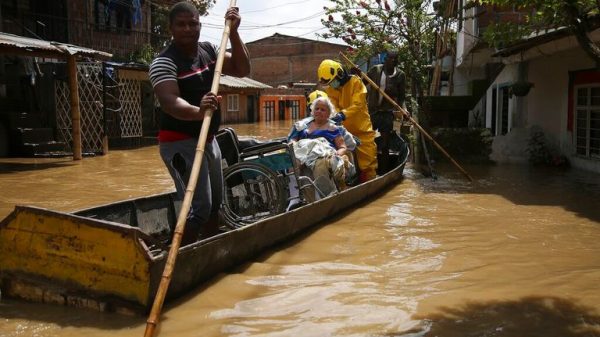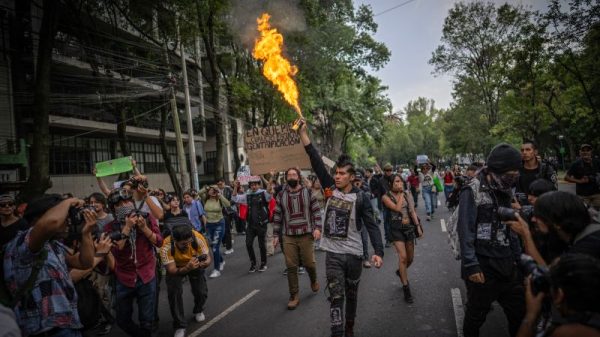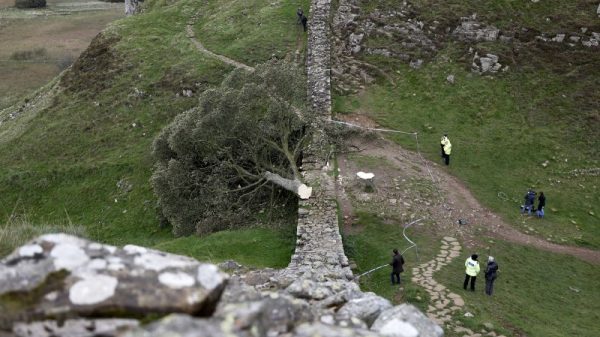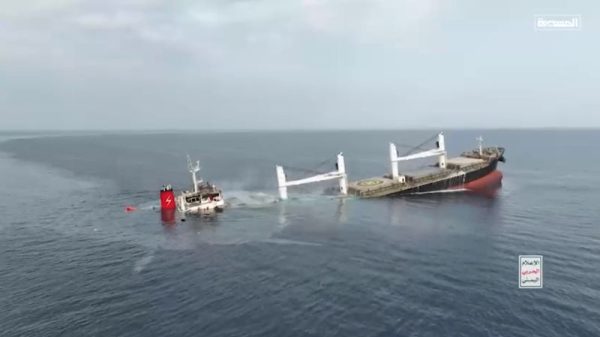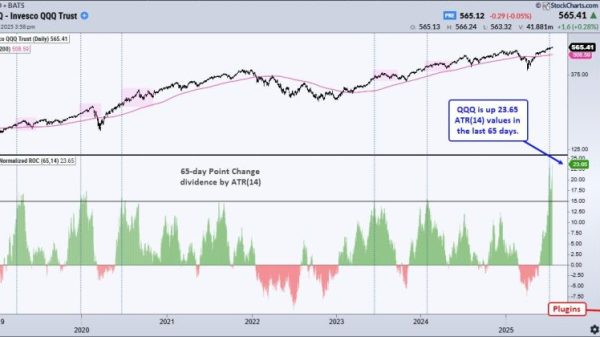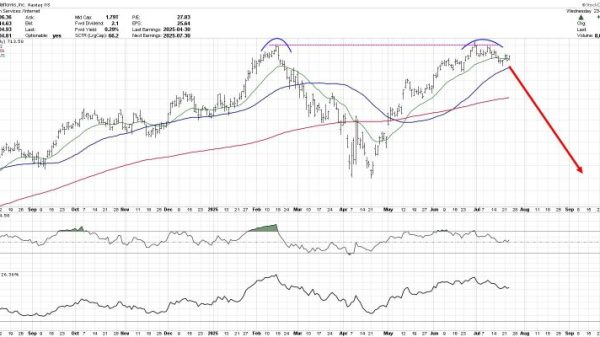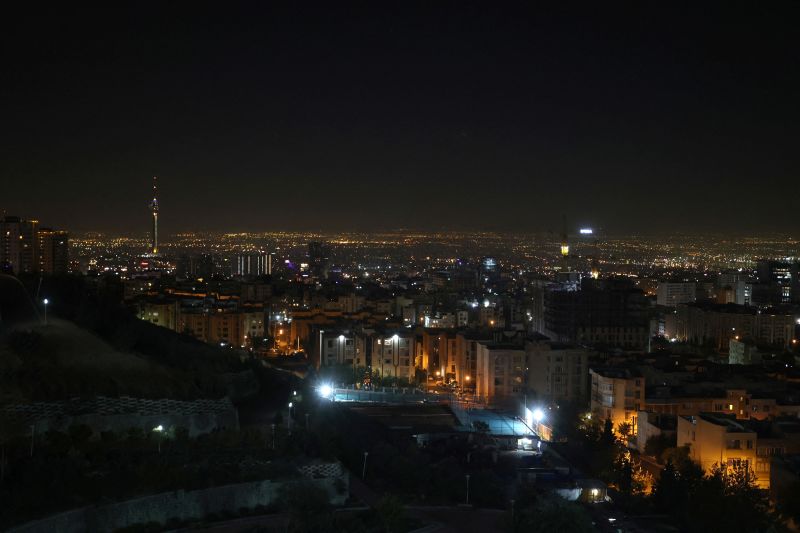Israel said on Saturday it had struck military targets inside Iran in response to earlier Iranian attacks, again raising fears that the long-running confrontation between the two powerful militaries could escalate into an all-out regional war that draws in the United States.
The Israeli military said it had targeted Iranian missile manufacturing sites and aerial defense systems in what appeared to be a highly calculated response that avoided critical energy infrastructure, such as oil fields and nuclear facilities.
Iran appeared to downplay the impact of the attack, claiming its air defenses had successfully countered the strikes in three provinces – Tehran, Ilam and Khuzestan – and that the damage was “limited.”
The US meanwhile described the attack as “an exercise in self-defense” that “specifically avoided populated areas and focused solely on military targets.”
Israel had vowed Iran would pay for its large-scale missile attack on October 1 that saw around 200 missiles fired at Israel, forcing people across the country to take cover in bomb shelters. For weeks Israeli leaders have been deliberating on the nature and scope of such a response.
Here’s what we know.
What happened?
In the early hours of Saturday local time, Israel launched direct airstrikes against Iran, conducting what it said was “precise strikes on military targets.”
The Israeli military said its air force struck “missile manufacturing facilities” that it said were used to produce the missiles that Iran had fired at Israel over the last year.
It also said the Israeli military struck “surface-to-air missile arrays and additional Iranian aerial capabilities, that were intended to restrict Israel’s aerial freedom of operation in Iran.” It is unclear if those manufacturing facilities also produced missiles launched by Iranian proxies Hezbollah, Hamas and Houthi rebels in Yemen.
Iran later confirmed the attack but said the strikes caused only “limited damage” in some areas, while images broadcast on state media showed the calmness on the streets of the capital Tehran.
Iran’s state news agency reported strikes targeting “military centers in the provinces of Tehran, Khuzestan and Ilam” had been “successfully intercepted.”
Several explosions were heard west of Tehran around 2:15 a.m. local time (7 p.m. ET Friday), according to the state news agency. Iranian officials said blasts heard around the country were related to air defense systems being deployed.
The initial strikes were closely followed by a second wave, as video posted to social media by Tehran residents showed tracer fire and explosions illuminating the Iranian capital’s sky as dawn neared. A third and final wave then followed.
By about 6 a.m. local time, the Israeli military said it has concluded its operation, saying the “mission was fulfilled” and Israeli jets “have safely returned home.”
How did we get here?
Saturday’s strikes are part of Israel’s long-awaited retaliation to Iran’s missile attack earlier this month, as the ongoing war in the Middle East continues to escalate to dangerous new levels.
On October 1, Iran launched 200 projectiles towards Tel Aviv and Israeli military bases in what it said was a response to the killing of Hezbollah leader Hassan Nasrallah and others, its largest ever such attack.
That missile barrage came about 24 hours after Israel launched a ground war in Lebanon, opening a new front in its war against Iranian-backed militants.
Israel and Iran have been fighting a shadow war through proxies and covert actions for decades. In April, that war came out into the open when Iran launched a wave of drones and missiles at Israel in an unprecedented attack in response to a suspected Israeli strike on the Iranian consulate in Damascus, Syria.
In recent weeks, Israel has ramped up its attacks against Iran’s proxies, including launching strikes targeting the Houthis in Yemen, and militants in Syria.
But it’s in Lebanon where Israel has refocused its operations after tit-for-tat strikes across the border escalated after Israel eliminated the leadership of Iran-backed Hezbollah in series of assassinations and airstrikes.
Hezbollah leader Nasrallah was killed in an Israeli strike on his underground headquarters in Beirut in September. Netanyahu had previously said his killing was “a necessary step” toward changing “the balance of power in the region for years to come.”
Israel’s war in Lebanon has since killed more than 2,500 people, displaced 1.2 million and created a unprecedented humanitarian crisis, according to Lebanon’s leader and international health officials.
In a statement issued at the outset of Saturday’s actions, the Israeli military accused Iran and its regional proxies of relentlessly attacking Israel beginning with last year’s 7 October attack by Iran-allied Hamas, during which more than 1,200 Israelis were killed and another 250 abducted.
Following the October 7 attacks, Israel declared war on Hamas and launched military operations in Gaza that have killed more than 42,000 people.
The UN’s human rights chief warned Friday that “one of the darkest moments” of the war is unfolding in the north of Gaza where the Israeli military is “subjecting an entire population to bombing, siege and starvation.”
What happens next?
A major concern of increasing military escalations is that Israel and Iran will become entangled in a full-scale war, one that risks drawing the US – Israel’s closest ally and biggest weapons supplier – into the fray.
A senior US administration official said President Biden has “encouraged” Netanyahu last week to “design” a retaliatory attack that would “deter future attacks against Israel.”
In recent weeks, the US and other allies have urged Netanyahu to exercise restraint and avoid striking Iran’s nuclear and oil assets.
The White House said the US “was not a participant in this operation” and urged “Iran to cease its attacks on Israel so that this cycle of fighting can end without further escalation.”
By refraining from attacking Iran’s oil or nuclear sites, Israel has potentially left room for de-escalation. But it is unclear whether Iran will respond to this latest attack.
Israel’s top military spokesperson Rear Adm. Daniel Hagari said after the conclusion of strikes that if Iran were to begin “a new round of escalation,” Israel will be “obligated to respond.”









